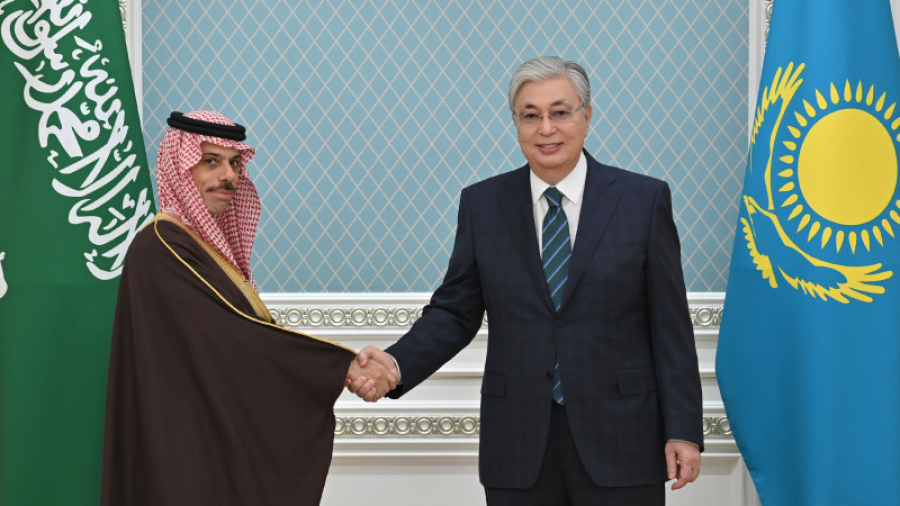
The second Central Asia–China summit with the
participation of heads of Kazakhstan, Uzbekistan, the Kyrgyz Republic,
Tajikistan, Turkmenistan, and China concluded in Astana. Addressing the summit,
President Kassym-Jomart Tokayev highlighted that an unprecedented model of
cooperation in the spirit of good neighbourliness, friendship, and mutual
support has been formed in Central Asia. He also noted that the region’s
existing opportunities will provide a strong foundation for further dynamic and
mutually beneficial cooperation with China.
«The combined GDP of Central Asian countries
is approaching the half-trillion-dollar mark. Over the past five years,
intraregional trade has increased significantly, surpassing $10 billion. Last
year, China accounted for nearly 40% of the entire Central Asian region’s foreign
trade, with total turnover reaching a record $95 billion. Kazakhstan
contributed 46% to this figure. Mutual trade turnover with China totaled $44
billion,» Tokayev said.
Chinese investments have become a key
component of Kazakhstan’s economic growth. The total volume of Chinese
investment in the country has exceeded $26 billion. Nearly 5,000 enterprises
with Chinese capital are successfully operating in Kazakhstan. Systematic
efforts are underway to identify new growth points in the economy, with special
focus on launching joint ventures with China, particularly in high-tech
manufacturing and the agro-industrial sector. Tokayev outlined key directions
for strategic cooperation between China and regional countries, with the
transit and transport sector being one of the most important. Last year, the
total volume of cargo transportation from China through Central Asia exceeded
210,000 containers.
«Representing the first link of the Belt and
Road megaproject, Kazakhstan advocates for its connection with key transport corridors
such as Western China–Western Europe, the Trans-Caspian International Transport
Route (TITR), and the North–South corridor. To enhance the attractiveness of
the Trans-Caspian route, we are taking systematic measures to modernize and
digitalize Caspian Sea ports, build cargo terminals, and establish shipbuilding
facilities. We propose considering the creation of a joint cargo terminal with
China at the port of Kuryk on the Caspian Sea,» he noted.
Tokayev named cooperation in the energy sector
as a key factor for regional stability. Given China’s successful experience in
developing nuclear energy, Kazakhstan is interested in cooperation in this
strategic area, the Head of State emphasized. He also called for strengthening
humanitarian cooperation with China. Tokayev highlighted the importance of
developing a long-term strategy for the Central Asia–China format for
2026–2030. Following the forum, the heads of state signed the Astana
Declaration and the Treaty on Eternal Good-Neighbourliness, Friendship, and
Cooperation between Kazakhstan, the Kyrgyz Republic, Tajikistan, Turkmenistan,
Uzbekistan, and China.









